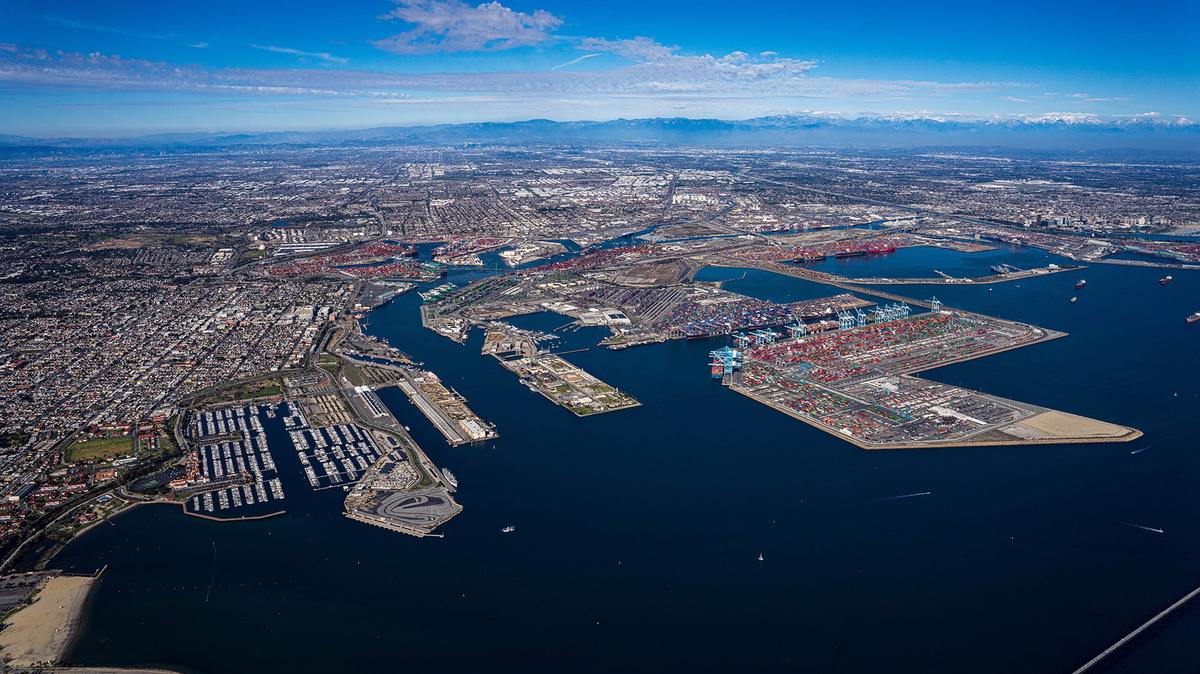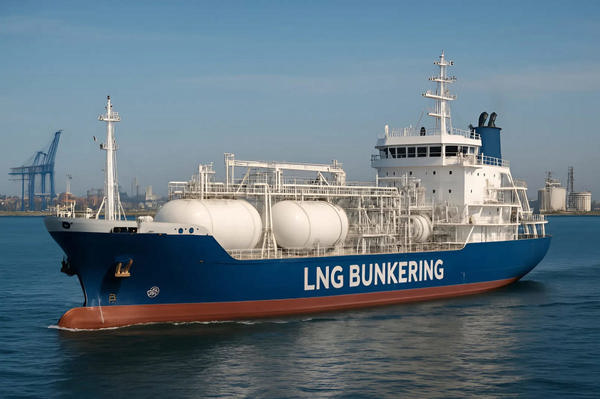US introduces Clean Shipping Act to combat shipping emissions
US officials have proposed the Clean Shipping Act of 2023 to regulate greenhouse gas (GHG) emissions from marine fuel and reduce emissions from the shipping industry from 2026 onwards.

PHOTO: Aerial view of Port of Los Angeles in the US. Getty Images
US lawmakers, Congresswoman Nanette Barragán, Congressman Robert Garcia and Senator Alex Padilla, introduced the Clean Shipping Act of 2023 to US Congress on June 8.
The bill aims to enable the US Environmental Protection Agency (EPA) to regulate maritime fuel carbon intensity standards to curb GHG emissions from "all ocean shipping companies doing business in the United States”, said Nanette Barragán.
“To successfully decarbonize the shipping industry at the speed and scale necessary to address the climate crisis, the EPA must set clear standards for zero-emission fuels and zero-emission port technology. Let’s get it done,” she added.
Clean Shipping Act of 2023
According to the first draft of the bill, every passenger and cargo vessel travelling between US ports or between the US port and a port outside the US will be required to reduce its overall carbon intensity by 20% between 2027-2029, 45% between 2030-2035, 80% between 2035-2040 and 100% from 2040 onwards, compared to the carbon intensity baseline level.
If passed, the law will be applicable to all passenger and cargo vessels with a gross tonnage of 400 or more.
The Act defines carbon intensity as the “quantity of lifecycle GHG emissions per unit of fuel energy” and carbon intensity baseline as the average carbon intensity of fuel used by all vessels within the US or between the US and international ports in 2024.
Additionally, it stipulates that each vessel must submit an annual report detailing the amount of fuel consumed on every journey to and from US ports of call. The report must also specify the carbon intensity of the fuel used onboard and the overall emissions emitted during the voyage in carbon equivalents.
The Clean Shipping Act of 2023 is proposed to come into effect from 1 January 2026, according to Congressman Robert Garcia.
The legislation will "incentivize industry and innovation to develop, scale and deploy zero-emission shipping technologies,” said Katherine Tsantiris, associate director of government relations at Ocean Conservancy.
“We encourage the US Congress to act on this legislation and to establish processes to ensure the supply of the green fuels and energy essential to low emissions shipping and logistics,” said Lee Kindberg, head of environment & sustainability at Maersk North America. “The need is pressing. This must be the decade of action.”
By Konica Bhatt
Please get in touch with comments or additional info to news@engine.online






